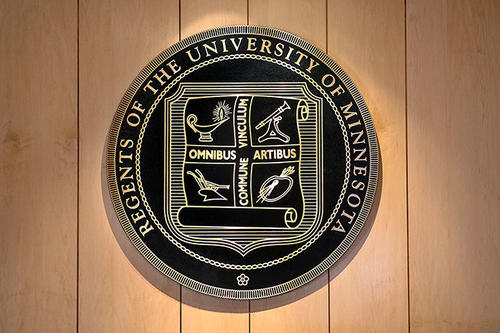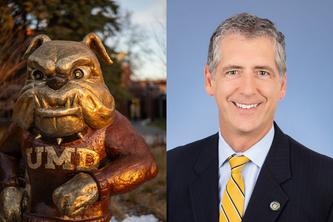
The University of Minnesota Foundation will report on a record-breaking fundraising year to wrap up two busy days for the University of Minnesota Board of Regents next week.
Individuals, organizations, and businesses throughout Minnesota and around the globe supported the University’s mission during the 2019 fiscal year (July 1, 2018 to June 30, 2019) at unprecedented levels, investing $361 million in University students, faculty, research and outreach. This year’s fundraising total surpasses the Foundation’s previous record high of $351 million, set in fiscal year 2015.
More than 72,500 donors made gifts, 53 percent of whom are alums. More than 99 percent of donor gifts are designated for a specific use, the largest being student support at $107 million. In addition to private gifts, another $119 million is expected in FY19 from private grants, which are research-focused donations.
The most recent fiscal year was the eighth year of the University’s 10-year Driven campaign. Through June 30, 2019, the end of the most recent fiscal year, more than 231,000 different donors have contributed $3.41 billion to Driven, putting the campaign 85 percent of the way to its goal of raising $4 billion in support for the University.
Regents Review Proposed Six-Year Capital Improvement Plan
During Thursday’s Finance and Operations Committee meeting, Regents will receive President Joan Gabel’s recommended six-year capital plan. This systemwide budget proposal addresses capital needs on all five of the University’s campuses and includes initial input into the University’s request from lawmakers for capital investment during the 2020 state legislative sessions.
In addition to high-priority individual projects, such as the Institute of Child Development on the Twin Cities campus, the capital plan and subsequent budget request to the legislature will include a variety of Higher Education Asset Preservation and Replacement (HEAPR) projects, which are intended to maximize and extend the life of facilities that serve students, faculty and staff. These maintenance funds are imperative to the University, where 43 percent of buildings are more than 50 years old. These existing structures need attention to remain compliant with state and local building codes, ensure energy efficiency and provide the learning and research spaces students need to learn and prepare for their careers; care that is often the most cost-effective approach to enhancing the campus experience.
The Board is also expected to:
- Learn more about the University’s efforts to combat aquatic invasive species during a visit to the Cancer and Cardiovascular Research Building on the Twin Cities campus over lunch on Thursday.
- Discuss on-campus student financial literacy programs and other efforts to support student success and ensure affordability.
- Hear more about the public outreach efforts of the Bell Museum and Glensheen that help connect these public educational assets to all Minnesotans.
For more information, including future meeting times, visit regents.umn.edu.
- Categories:
- Campus Affairs





